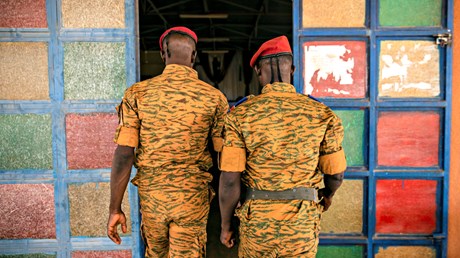Once considered a beacon of peaceful coexistence between Christians and Muslims, the West African nation has been embroiled in unprecedented extremist violence.

In the more than 15 years Salomon Tibiri has been offering spiritual succor as a military pastor in Burkina Faso, he’s never fielded so many calls from anxious soldiers and their relatives as in recent years, when the army found itself under attack by Islamic extremist fighters.
“Before the crisis there was more stability,” Tibiri said, seated in a military camp church in the city of Kaya, in the hard-hit Center-North region. “Now (the soldiers) are busier, and when you approach them you feel their stress—much more stress.”
Once considered a beacon of peace and religious coexistence in the region, the West African nation has been embroiled in unprecedented violence linked to al-Qaida and the Islamic State since 2016.
[Editor’s note: A series of terrorist attacks on churches led Open Doors to add Burkina Faso to its persecution watch list in 2020 for the first time, and to rank it No. 32 out of the 50 countries where it’s hardest to be a Christian in 2021. Meanwhile, Burkinabe Christians have debated whether or not to join civilian militias in response.]
The attacks have thrown an ill-equipped and undertrained army into disarray—and overwhelming the chaplains tasked with supporting them.
In interviews in the Center-North and in Ouagadougou, the capital, military chaplains told The Associated Press that they are stretched thin by the unprecedented conflict and what assistance they are able to provide through phone calls and prayer services is insufficient.
Just seven chaplains, hailing from Protestant, Catholic, and Muslim faiths, are charged with spiritually advising some 11,000 soldiers and helping maintain their morale. The army has not devoted what little resources it has ...
from Christianity Today Magazine
via


.gif)

.gif)
.gif)
